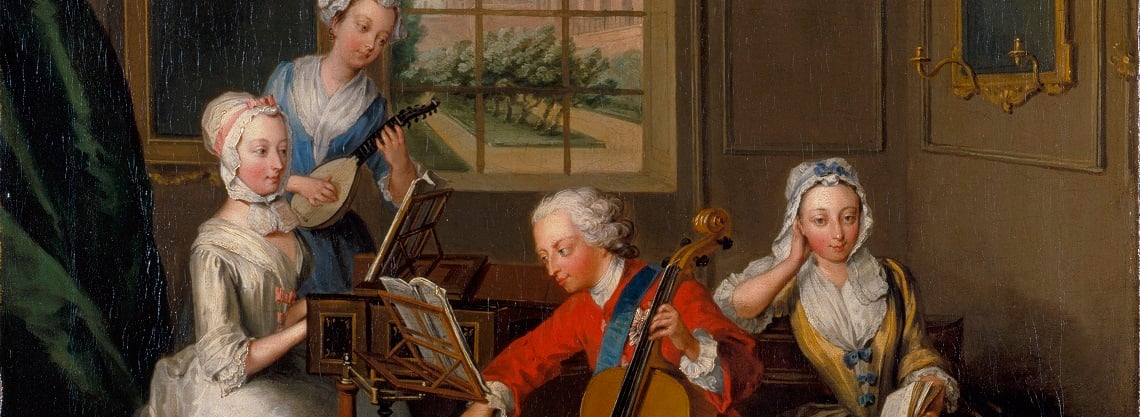
Music in the Royal Collection
Many members of the royal family were talented musicians
George III (1738–1820) and Queen Charlotte (1744–1818)
For both George III and Queen Charlotte, music was of the greatest importance. Particularly during the early days of their marriage, they held regular concerts across royal residences.
Queen Charlotte was passionate about music. Not only did she lend great support to both new and established musicians, she was herself also proficient on the harpsichord. In fact, she is said to have played the harpsichord in her cabin during the rough voyage of her first journey across the North Sea to England.
In 1764, an eight-year-old Mozart played for the king and queen. He subsequently dedicated six sonatas for the harpsichord with violin or flute accomaniment to the queen. The letter he sent to accompany this dedication conveys the power of his feeling:
To the Queen Madam, Full of pride and joy at daring to offer a homage to You, I finished these Sonatas in order to lay them at the feet of your majesty; I was, I confess, intoxicated with vanity and ravished myself when I perceived the Genius of Music at my side… It is said that everything should be allowed to Genius; I owe mine the happiness of pleasing You, and I forgive it its caprices. Deign, Madam, to receive my poor gifts.
Mozart
The king's tastes were both passionate and conservative. His taste for Handel was resolute and in his later years he would often recall with pride Handel's words, 'while that boy lives, my music will never want a protector'. He gave concerts of Handel's music in the Queen's Presence Chamber, often writing out the programmes in his own hand. Like Charlotte, the king was proficient on the harpsichord. He also played the pianoforte and the flute. Playing the flute in particular must have been a consoling occupation for the king; during his recovery at Kew in February 1789 he often played to himself.







